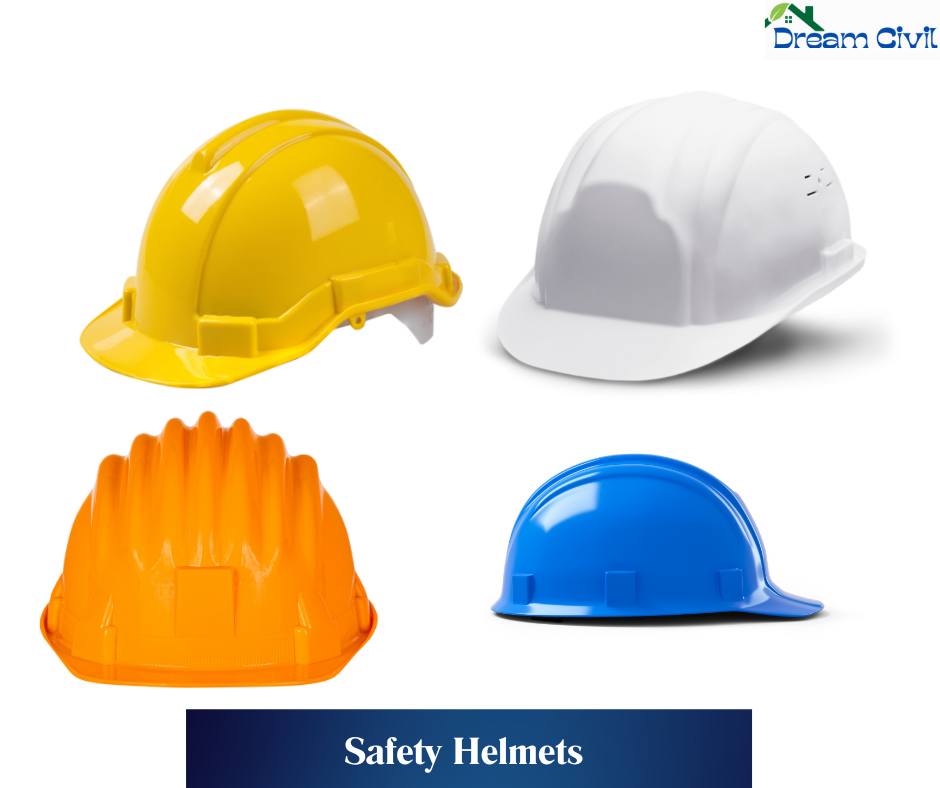Table of Contents
✔ Safety helmets are typically worn to protect the head from falling objects or impact with other items.
✔ The primary purpose of the safety helmet is to shield the workers from potential head injuries. Apart from this, the color code of the helmet lets you know about a worker’s role, expertise, or responsibilities.
✔ They are also known as hard hats.
What are the Purposes of Safety Helmet?
✔ The primary purpose of hard hats is to protect the head, and the secondary purpose is to identify the individual and their role based on color coding.
Safety Helmets Color Code
a. White Helmets: Managers, Engineers, Supervisors and Foremen
✔ White helmets are generally worn by managers, engineers, supervisors, foremen, etc.

b. Yellow Helmet: Labors, earth moving operators
✔ Laborers and earth-moving operators generally wear yellow helmets. The yellow color of the helmet improves the visibility, preventing accidents.

c. Blue Helmet: Electricians, Carpenters, and other technical operators apart from civil work
✔ Blue helmet is mainly associated with specialized roles and is commonly used by technicians like electricians, carpenters, and other technical operators apart from civil work.

d. Green Helmet: Safety Officers or Safety Inspectors
✔ Safety officers or safety inspectors generally wear green helmets. New workers are also generally given green helmets to wear as it indicates their novice status.

e. Orange Helmet: Road Crews
✔ Personnel commonly use the orange helmet in road construction or related operations.

f. Brown Helmet: Welders and other workers with high heat applications
✔ This helmet is commonly used by welders and workers with high-heat applications.

g. Red Helmet: Fire Fighters
✔ The red color of the helmet resembles the emergency response team. Firefighters wear it.

h. Grey Helmet: Site Visitors
✔ Personnel who come to visit the site are commonly provided with grey helmets.

i. Pink Helmet: Female Workers
✔ Female workers wear pink helmets.

What are the Properties of a Safety Helmet?
✔ Safety helmets should have the following desirable properties:
a. Shock Resistance:
✔ The helmet should be able to resist the shocks so that the head and brain remain safe.
✔ It should absorb and dissipate impact energy properly, so the best materials with high shock-absorbing properties should be utilized to make safety helmets.
b. Penetration Resistance:
✔ The helmet should be able to protect against sharp or pointed objects by preventing penetration.
✔ High-density polyethylene (HDPE) or other composite materials are used to make the outer shell of the safety helmets penetration-proof.
c. Water Resistance:
✔ The helmet should be waterproof as far as possible. This property is vital for safety helmets primarily used in wet climates.
d. Flammability Resistance:
✔ The helmet should be able to resist the flames of the fire and should not easily catch fire or propagate flames.
e. Heat Resistance:
✔ The helmet should be able to resist high heat and also be designed with proper ventilation as they are also used by workers in high-temperature areas.
f. Electrical Resistance:
✔ The helmet should be able to resist the electrical current. Mostly, the helmet should be made with insulating materials like HDPE, hard plastic, etc.
| Read More: 15+ Safety Equipment List. |
| Verified Article By Er. Madhu Krishna Poudel |

